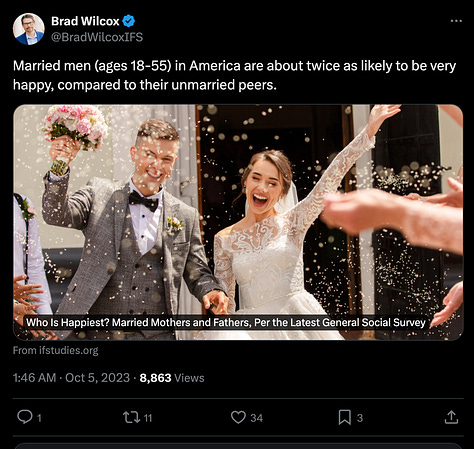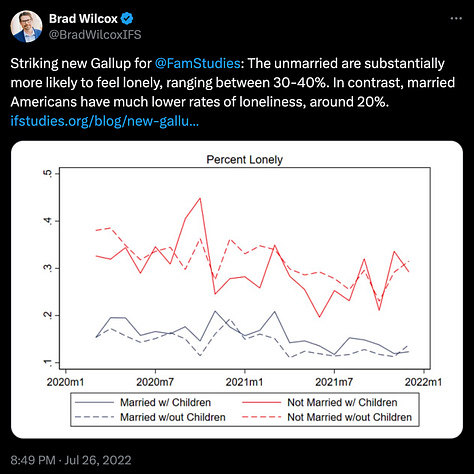Staying in Our Lane (Part 1)
In my last post, I began to engage with some of the ideas in Brett McCracken’s recent TGC article, As a Single Man, I Felt Little Pressure to Get Married. I Wish I Had.
In that post, I argued that our Christian perception of and response to what we see happening around us—whether on singleness, marriage or anything else—should be foundationally refracted through the lens of the gospel (rather than through sociological data, trends and anxiety).
In this second (and an upcoming third) post, I want to take the discussion further. That is, I want to suggest that, not only should sociology not be the foundational lens we peer through, but that when we do peer through it, we ought to exercise great care and caution.
In a nutshell, I want to encourage us Christians to stay in our lane.
Before I say anything further, let me be clear: I recognise that sociology does not form the totality of Brett’s argument. That is, he does offer some biblical and theological reflections, and I plan to interact with these in a later post.
I also appreciate how he provides some contextual qualifications to his sociological argument. At various points, he also seeks to clarify what he is not trying to say (though again, I want to return in a future post to evaluate the success of this).
Finally, I want to reiterate what I said in my previous post—the sociological argument on view in Brett’s article does not originate from him. Nor is it exclusive to him. Not by a long shot. In fact, it’s been doing the general rounds for at least a year or two.
All of which is to say that, just as Brett employed sociology as an entry point into his argument, here I am using his article as an entry point into my argument: namely that sociology is of limited relevance and usefulness for Christian ethical determination and reflection.
The Data says…
In the early part of his article, Brett presents some sociological findings about the decreased sense of urgency towards and interest in marriage in America today.
As marrying young becomes less common and never-married, childless adulthood becomes more normal, fewer singles feel the urgency to seek a spouse and “settle down.” One recent study showed that, among single and never-married American adults, only 29 percent report they feel pressure from society to get married, with even fewer (19 percent) saying they’ve felt pressure from their family to get married.”
As a Single Man, I Felt Little Pressure to Get Married. I Wish I Had
He contends that increasing rates of delayed marriage and decreasing rates of fertility are directly responsible for:
“…yielding a litany of negative short-term effects and foreshadowing ominous long-term societal consequences.”
As a Single Man, I Felt Little Pressure to Get Married. I Wish I Had
This is bad news indeed. However, there is good news. In fact, there is a way to turn all of it around.
“But research shows that getting married, far from a hindrance to financial stability, is one of the best things you can do to gain long-term financial health. Further, as Brad Wilcox helpfully summarizes in Get Married, marriage is positively correlated with happiness, better mental and physical health, and various other measures of flourishing. And so as Keith Simon argued for The Gospel Coalition last year, “If parents wish for their adult children to be happy, the data suggests they should encourage them to prioritize marriage and children over financial independence and career advancement, when given the choice.”
As a Single Man, I Felt Little Pressure to Get Married. I Wish I Had
Brett argues that sociological research shows marriage is the highway to happiness, financial security, superior mental and physical help, as well as a range of other measurable indications of personal flourishing. And so, Christians—indeed society as a whole—should encourage young adults to not simply prioritise but proactively pursue marriage and procreation. And it would seem, the earlier the better.
In the quote above, Brett mentions Christian sociologist and author Brad Wilcox (author of Get Married: Why Americans Must Defy the Elites, Forge Strong Families, and Save Civilization). While not alone in prioritising sociological research and analysis for the sake of ethical formation by Christians, Brad Wilcox is certainly at the forefront.
Here are just a few of the (many) comments he has made over the last couple of years about the correlation of happiness, marriage, and children.









Wilcox’s article, Why You Should Get Married, helpfully represents not simply his own research but also the sociologically driven ethical trajectory that is being increasingly adopted by other Christians on singleness, marriage, and family. He writes:
Well, no one calls their lives happier and more meaningful than men and women who are married, according to the 2022 General Social Survey (GSS). Women ages 18–55 who are married are almost twice as likely to be “very happy” with their lives (37 percent), compared to their single peers (19 percent).
Married men ages 18–55 are also more likely to be “very happy” (34 percent) than their peers who are not married (13 percent).
Meanwhile, 23 percent of unmarried women ages 18–55 say they are “not too happy” with their lives, compared to 13 percent of married women
[…] In fact, marriage is a better predictor of happiness than education, work, money, frequent sex, or regular religious attendance.
Why You Should Get Married
Yikes. Married women are almost twice as likely to be very happy than their unmarried counterparts. And for married men, that jumps to almost three times as likely! Correspondingly, almost double the number of unmarried women report not being too happy with their lives.
According to Wilcox et al., the sociological data is clear: Getting married is the best way for individuals (including Christians) to secure greater happiness, health, wealth, and security.
Veering into an Adjacent Lane
And so, more and more Christian pastors, leaders, and commentators are now using sociological data as the basis for their ethical exhortations for Christians to marry. Here’s just one example:
The truth about marriage, however, is that it is, statistically, the single best predictor of long-term happiness. Making this even more important to understand is that for at least the last 20 years now, Americans have been steadily getting less happy.
[…] In other words, the decline of marriage over the last several decades is causing the decline in happiness, or at least most of it. As Peltzman told The Atlantic in statistical hyperbole: “The only happy people for 50 years have been married people.
[…] Marriage is part of God’s plan for humanity and for His creation. No other human institution forges such lasting and consequential bonds. So, it should surprise no one—least of all Christians—that our nation’s 50–year experiment with alternatives to marriage has left huge numbers of people deeply unhappy. Thanks to social science, we know the solution. The question now, for each of us and for all of society, is whether we’re willing to commit.
Married People are Happier
The excerpt above is from an article (Married People Are Happier) published by Breakpoint, a media arm of the Colson Centre. According to their website, the Colson Centre “exists to equip Christians with the clarity, confidence, and courage they need to live like Christians in this cultural moment.” The article was co-authored by John Stonestreet, the president of the Colson Centre, and Shane Morris, Breakpoint’s assistant editor.
So, here we have a Christian resourcing ministry that seeks to equip Christian people to live for Christ, and their argument is that there is an easy fix to the “huge numbers of people who are deeply unhappy” because:
Thanks to social science, we know the solution. [i.e., Get married, you’ll be happier]
Thanks to social science, we know the solution.
Folks, let that sink in.
Here is a Christian resourcing centre saying that social science is what gives us the answers on how to best live for Christ.
I’m sure this is not all Breakpoint or the Colson Centre have had to say about the place and purpose of marriage in the Christian life. And yet in this particular article, as they seek to equip their Christian readers to “live like Christians in this cultural moment”, their entire argument is that social science has found the answer. It is what has diagnosed the problem, provided a prognosis and offers an obvious solution.
This is just one specific example of a much broader and progressively insistent trend in which Christians (including Brett in his article) increasingly rely on sociological research and analysis to inform and substantiate Christian ethical thinking and action.
In other words, we Christians are increasingly veering out of our lane (theology and its pastoral application) to find our groove in an adjacent lane (sociology and its cultural application).
Staying in Our Lane
Don’t get me wrong. Sociology can be a useful tool. It can provide us with some interesting and important insights into the culture surrounding the Church, and the wider community that we seek to evangelise with the good news of Jesus Christ.
We should take seriously the sociological research that suggests marriage and fertility rates are declining in Western countries. Likewise, we should be concerned that social science reveals loneliness and isolation are now found at epidemic levels in Western communities.
Furthermore, we ought not to be surprised when this discipline reveals that those in our communities suffer and struggle in various ways. Indeed, we should expect there to be alignment between sociological data and what we Christians know is the reality of living as fallen people in a fallen world.
So, sociology is not something Christians should avoid with a ten-foot pole. It can provide us with some helpful diagnostic and analytical insights.
However, when we Christians start turning to sociology to provide us with “solutions”, well, then we have a problem.
After all, we are not people of the data.
We are people of the Word.
In my next post, I plan to outline a number of reasons why I think we ought to be very cautious about using sociology as an instrument to determine how and why Christians ought to live—particularly when it comes to marriage, singleness and community.
To keep updated when Part 2 drops, make sure you subscribe below!




Yes! How is it we are writing & teaching about finding happiness in our devotion to Jesus? Why are we not looking for the numbers that show following Jesus and being community with our church family provides healthy and happy lives? we need to be questioning why we are looking there and why we are looking in the other lanes.
I very much dislike the implications of the quotes you have taken from Wilcox's and Breakpoint's articles (no surprise there, "preaching to the choir" and such). However, I find myself quite disturbed that the reason for the conflict is not so much about their portrayal of marriage (and of singleness as its absence), but because they seem to claim that living "as Christians in this cultural moment" is more about maximising one's personal happiness than actually seeking to live like Christ.